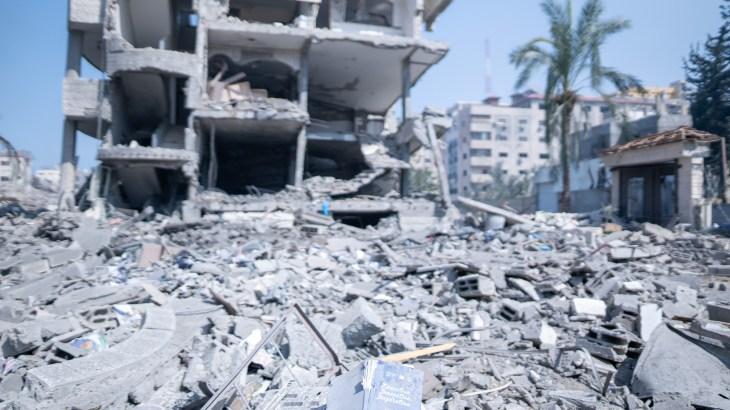Source: ALJAZEERA
ALJAZEERA MEDIA NETWORK

Over 76% of Gaza schools need major repairs or complete reconstruction to be functional.
More than 76 percent of schools in Gaza need “full reconstruction or major rehabilitation” to be operational following Israel’s prolonged attacks, according to a new assessment provided by the UN Office for the Coordination of Humanitarian Affairs.
The latest Education Cluster assessment, which relies on satellite images collected in May, underscores a “continuous spike in the direct targeting of schools” in the beleaguered and bombarded area.
Of the school buildings used as shelters for displaced persons in Gaza, 69 percent have been directly struck or damaged in assaults, and more than 96 percent of the schools directly impacted – 296 in total – were situated in areas under Israeli military evacuation orders, the report added.
According to Talal al-Hathal, director of the Al Fakhoura Programme at Education Above All Foundation in Qatar, Israeli assaults on educational institutions in Gaza have not only “disrupted immediate educational activities but also undermined the foundation for long-term societal growth and development.”
“Targeting vital educational infrastructure erodes hope for numerous Palestinians in Gaza where education is a crucial tool for survival and equality, enhancing prospects for better future outcomes,” al-Hathal conveyed to Al Jazeera.
“Education represents a key instrument for survival, empowerment, and long-term development in the region, presenting a route to a more stable and prosperous future. By attacking educational facilities, aggressors eliminate the prospects of enlightenment, opportunity, and progress, exacerbating the cycle of despondency and deprivation in the region.”
In April, UNICEF reported that eight out of 10 schools in Gaza were damaged or destroyed, with an estimated 620,000 students out of school. Nearly half of Gaza’s population is under 18, and its education system was already struggling following numerous wars and escalations since 2008.
“To learn effectively, children need a safe environment. Currently, most kids in Gaza have brains affected by trauma,” noted child psychiatrist Audrey McMahon of Doctors Without Borders (Medecins Sans Frontieres, or MSF). Younger children might develop lifelong cognitive disabilities due to malnutrition, while teenagers are likely to feel intense anger over the injustices they have endured, she explained.
“The challenges they will face are immense and will require significant time to heal.”

Al-Hathal labeled the targeting of educational institutions across Gaza as “shameful, especially in light of the global education crisis where over 250 million children are out of school globally.”
Beyond the destruction of the buildings, numerous students and teachers have also lost their lives in the attacks, which have devastated educational infrastructure and inflicted mental trauma on thousands of affected students.
“The conflict will undoubtedly leave educational institutions, access to essential infrastructure, and the regularity of the educational process in Gaza worse off than before the conflict,” al-Hathal emphasized.
“With nearly 400 school buildings in Gaza incurring damage, the conflict has worsened the plight of the educational sector. This damage is exacerbated by the internal displacement, with these schools now serving as shelters and accommodating nearly four times their design capacity, further straining the already burdened educational infrastructure.”
It is not only schools that have suffered under the Israeli bombardment. Higher education centers, including universities, have been completely incapacitated.
Israa University, located in the southern part of Gaza city, was demolished by Israeli forces, as illustrated in a video released by Israeli media in January. According to university authorities, Israel occupied and used the campus as a military base and detention facility for months before destroying it.
“Community partnerships, mental health support, technological assistance, and educational advocacy are among the initiatives that can help students and teachers in Gaza overcome the present challenges,” al-Hathal suggested.
Your email address will not be published. Required fields are marked *